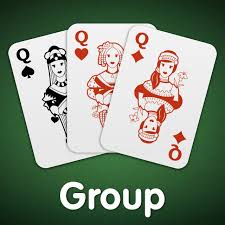Rummy How Many Cards Dealt, is a popular card game that has many variations, each with its own set of rules and nuances. One of the fundamental aspects of Rummy gameplay is the number of cards dealt to each player, which can significantly impact strategy and game dynamics. This article explores how many cards are dealt in various versions of Rummy and the implications for gameplay.
Standard Rummy Card Dealing
In the classic version of Rummy, the number of cards dealt to each player is a key factor in setting up the game. Here’s a look at the most common Rummy variants and how many cards are dealt in each:
- Classic Rummy (Two Decks):
- Number of Cards Dealt: In a standard game of Rummy played with two decks of cards, each player is usually dealt 10 cards. This is the most common setup for a game involving 2 to 6 players.
- Gameplay Implications: With 10 cards in hand, players have the opportunity to form sets and runs, while managing their hand to reduce deadwood. The draw pile is used to replenish cards and offer new opportunities for melding.
- Gin Rummy:
- Number of Cards Dealt: In Gin Rummy, each player is dealt 10 cards, regardless of the number of players. Gin Rummy is typically played with 2 players, although variations for more players exist.
- Gameplay Implications: The goal is to form valid sets and runs with the 10 cards dealt, aiming for the lowest deadwood score possible. Players draw and discard cards to improve their hands and strategize their moves.
- Indian Rummy:
- Number of Cards Dealt: In Indian Rummy, which is often played with two decks and two jokers, each player is dealt 13 cards. This variant is typically played with 2 to 6 players.
- Gameplay Implications: With 13 cards, players have more flexibility in forming sets and runs. The larger hand size adds complexity to the game, requiring players to manage their cards carefully and make strategic decisions.
- Kalooki (Kaluki) Rummy:
- Number of Cards Dealt: In Kalooki Rummy, each player is dealt 13 cards. This version of Rummy is usually played with 2 to 6 players and often involves one or more jokers.
- Gameplay Implications: The 13-card hand allows for more complex strategies and combinations. Players must focus on forming valid sets and runs while dealing with the additional cards and potential jokers in play.
- Oklahoma Rummy:
- Number of Cards Dealt: In Oklahoma Rummy, a variant often played with 2 to 4 players, each player is dealt 7 cards.
- Gameplay Implications: With fewer cards, the game tends to be faster-paced and requires players to make quick decisions about forming sets and runs. The smaller hand size can lead to more aggressive play and strategic depth.
- Canasta (a Rummy Variation):
- Number of Cards Dealt: Canasta, a variation of Rummy, is played with two decks of cards, and each player is dealt 11 cards.
- Gameplay Implications: The goal is to form melds of seven cards of the same rank or other specific combinations. The hand size affects how players plan their melds and manage their cards.
Factors Influencing the Number of Cards Dealt
- Number of Players:
- The number of cards dealt can vary based on the number of players in the game. Generally, more players mean fewer cards dealt to ensure a balanced game and to accommodate the draw and discard piles.
- Deck Size:
- The number of decks used in the game can influence the number of cards dealt. Games with multiple decks may deal more cards to each player, providing a richer and more complex gameplay experience.
- Game Variants:
- Different Rummy variants have their own rules regarding the number of cards dealt. Each variant offers a unique twist on traditional Rummy gameplay, influencing strategies and tactics.
Implications for Gameplay
- Strategy:
- The number of cards dealt affects how players approach the game. More cards generally mean more opportunities to form sets and runs but also require better hand management. Fewer cards lead to a faster game and more immediate decision-making.
- Game Duration:
- A larger hand size often results in longer game durations, as players have more cards to manage and more combinations to consider. Smaller hand sizes lead to quicker games and faster decision-making.
- Complexity:
- More cards introduce greater complexity and strategic depth, while fewer cards simplify the game and speed up play. The hand size influences how players assess their options and plan their moves.
Conclusion
The number of cards dealt in Rummy significantly impacts the gameplay experience, influencing strategy, complexity, and game duration. Whether you’re playing classic Rummy, Gin Rummy, Indian Rummy, or one of its many variants, understanding how many cards are dealt helps you prepare for the game and tailor your approach accordingly. By familiarizing yourself with the card-dealing rules of each Rummy variant, you can enhance your gameplay and enjoy a more engaging and strategic experience.




